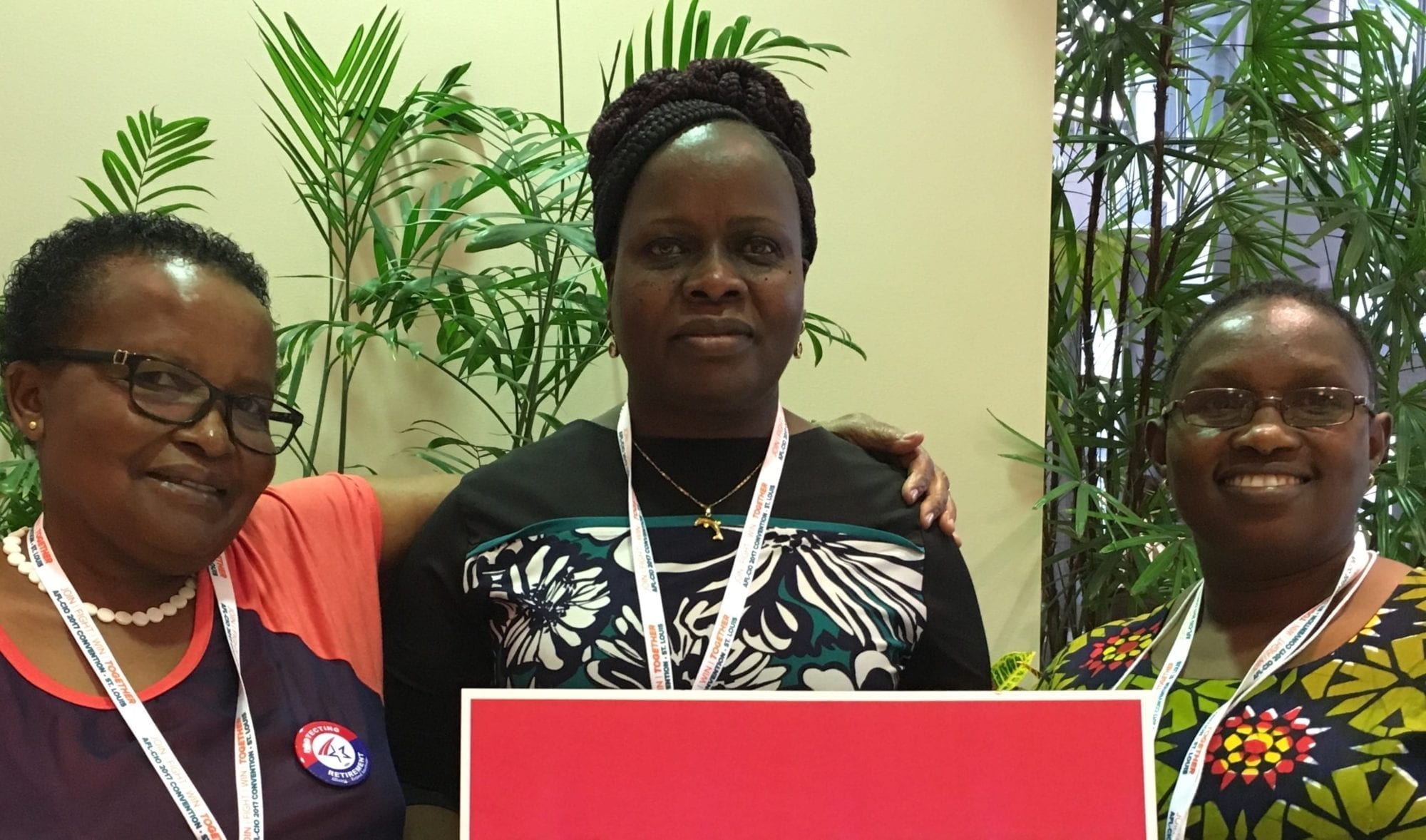
Dec 20, 2017
As part of our year in review series, we are highlighting the 12 most popular Solidarity Center web stories of 2017. This story received the most reach on our Facebook page in October. Read the full story here.
When Rose Omamo started work in 1988 as a mechanic in a vehicle assembly plant in Kenya, she was one of two women in a workplace dominated by hundreds of men. Her employer refused to recognize the women’s basic requests, and even her union, the Amalgamated Union of Kenya Metal Workers, negotiated contracts that excluded their concerns.
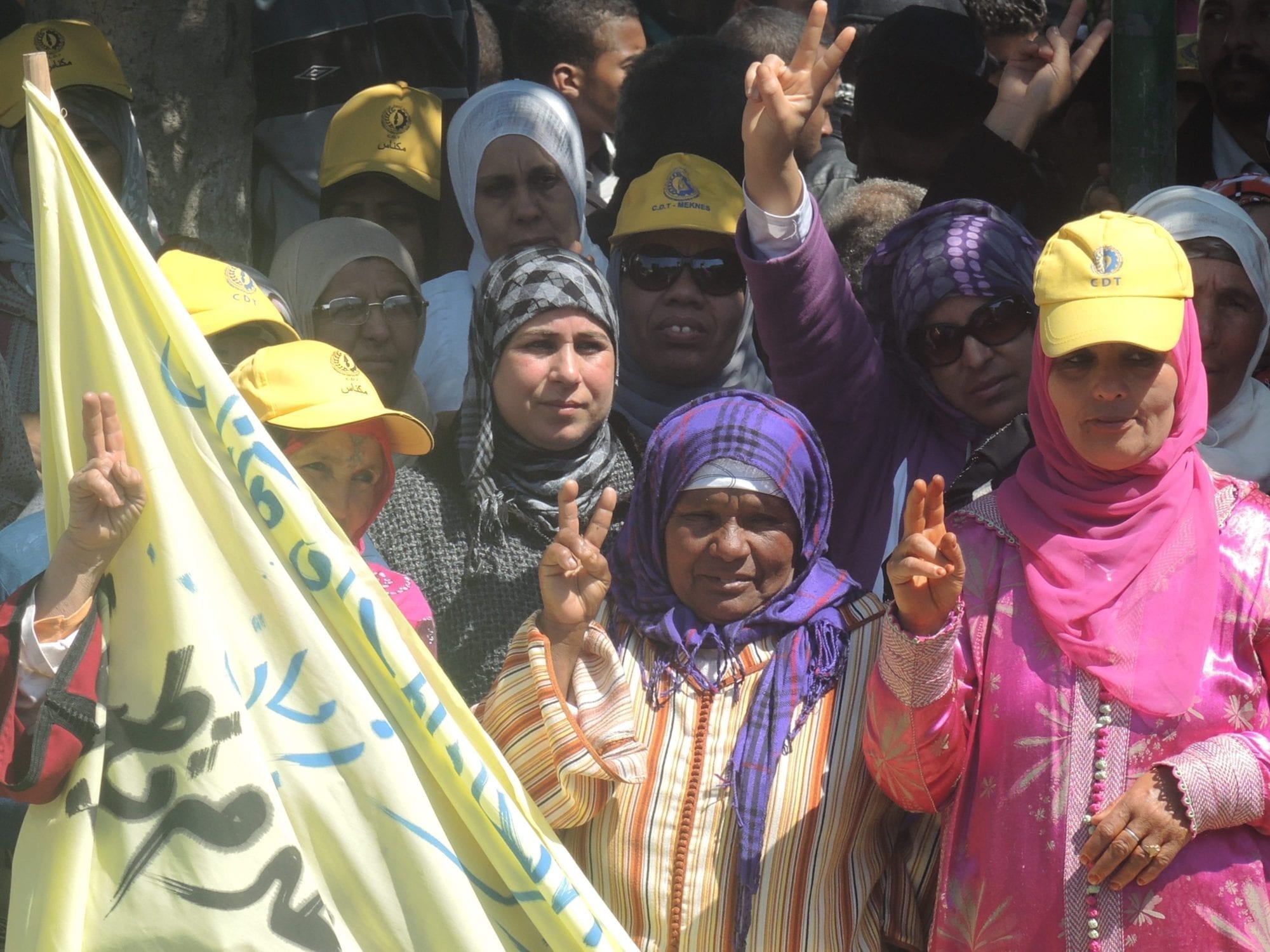
Dec 19, 2017
As part of our year in review series, we are highlighting the 12 most popular Solidarity Center web stories of 2017. This story received the most reach on our Facebook page in November. Read the full story here.
Agricultural work remains one of the most dangerous in the world. And women, who comprise between 50 percent and 70 percent of the informal workforce in commercial agriculture, are especially vulnerable to sexual harassment, physical abuse and other forms of gender-based violence at work.
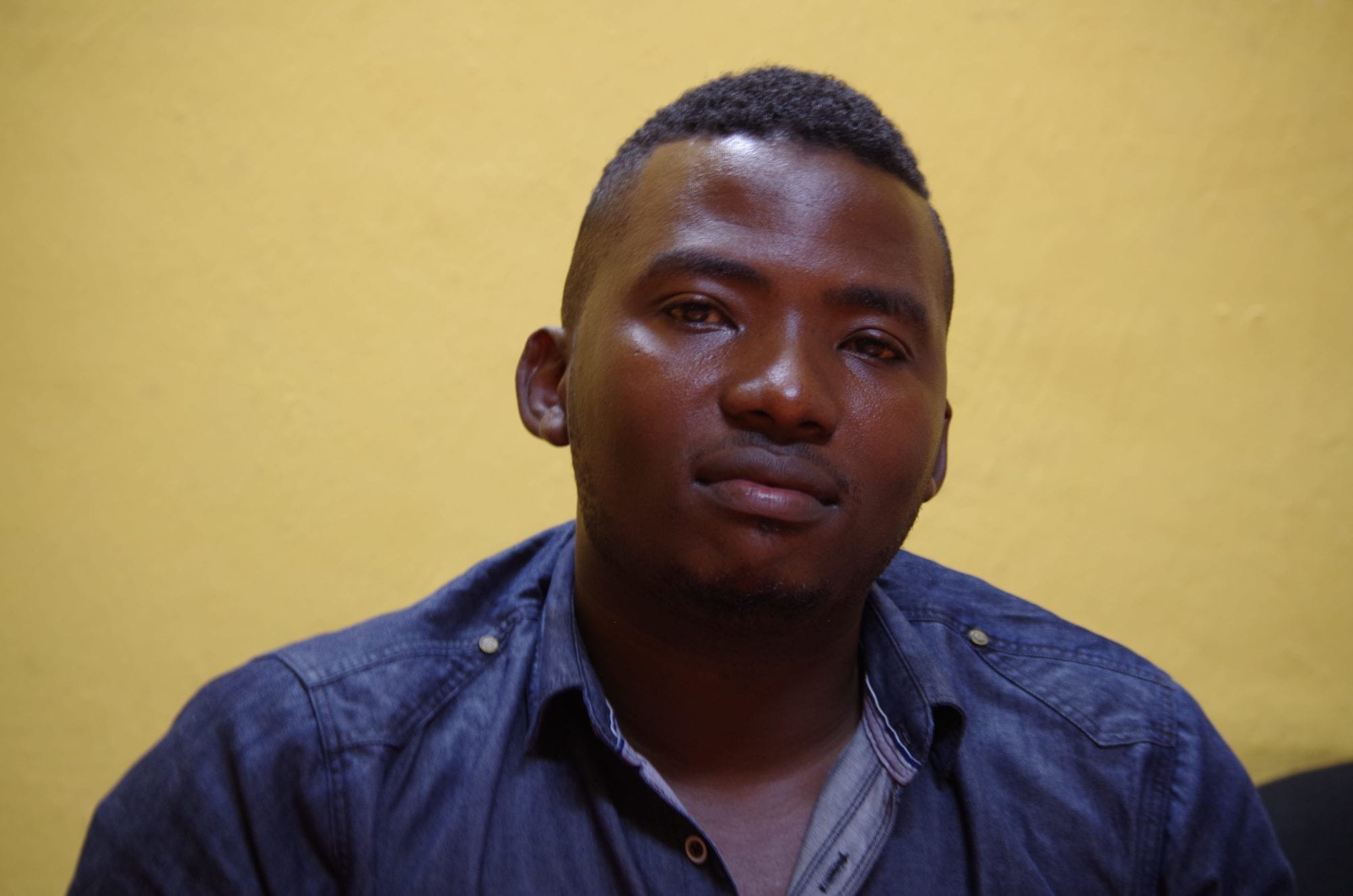
Dec 18, 2017
In Mombasa, Kenya, a labor broker offered Frank Wetindi a job in Dubai as a driver. Wetindi went into debt to pay the broker, but was given a job unloading planes in brutal heat, for a salary far less than he was promised.
Living with eight men crammed in one room, Wetinidi says the experience overall “was not good.” When he became sick and went to the hospital, the employer deducted the cost from his salary, leaving him with nothing in his account. He says he was denied “freedom of workshop, freedom of movement and freedom of communication.”
Labor agencies “lie to [migrant workers about] the job they are going to do, the good salaries and all that. On arrival, you find something else,” he says.
Today, International Migrants Day, is a time to recognize that millions of migrant workers are trapped in conditions of forced labor and human trafficking. Some 150 million are migrant workers are among the 244 million migrants around the world, and like Wetindi, many have been lied to about the wages and working conditions they were promised by labor brokers.
The Solidarity Center and its partners around the world to create community and workplace-based safe migration and counter-trafficking strategies that emphasize prevention, protection and the rule of law. Most recently, the Solidarity Center and our partners in the Americas crafted a worker rights agenda for inclusion in the United Nations Global Compact on Safe, Regular and Orderly Migration.
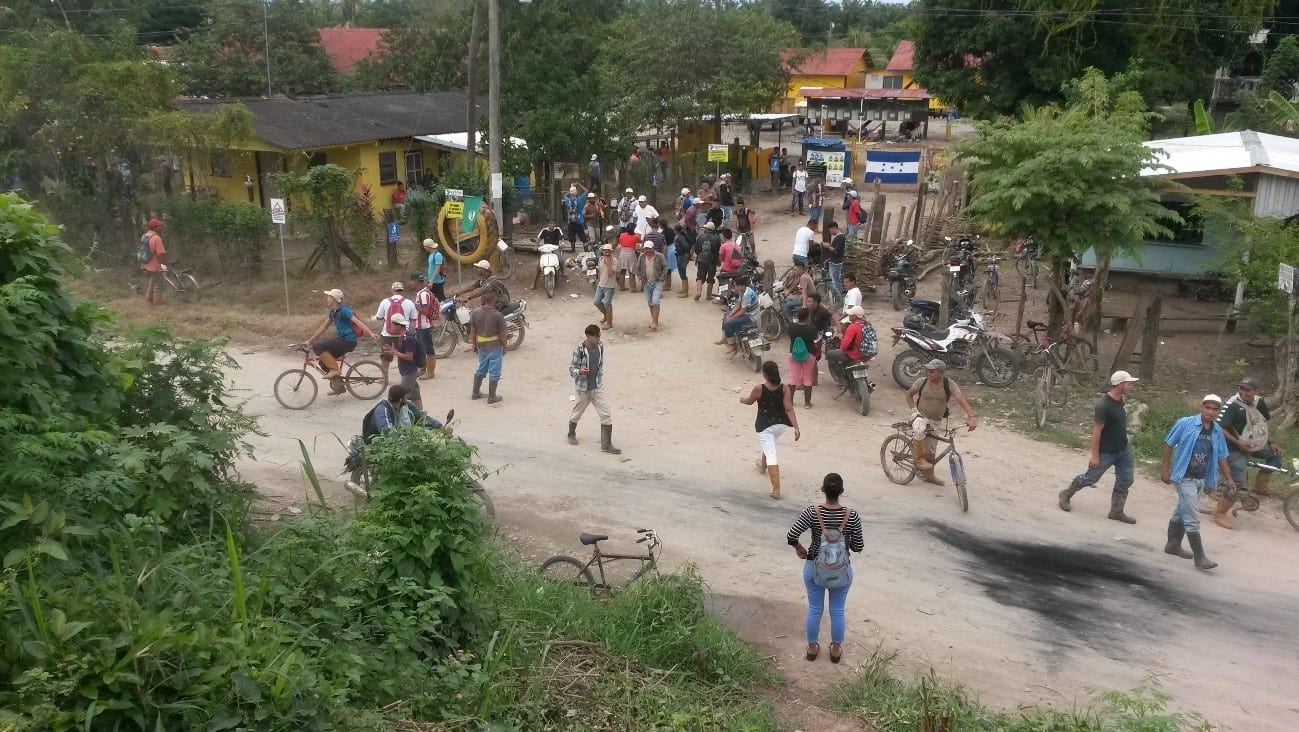
Dec 15, 2017
Several striking palm oil workers in Honduras were physically assaulted by private security guards and threatened with prison this week as they peacefully walked a picket line at company offices in El Progreso, according to the agro-industrial workers’ union federation FESTAGRO. The workers have been on strike since October, seeking to form a union in the face of stiff employer opposition.
Denouncing the attack, STAS, an agro-industrial union affiliated with FESTAGRO, says the company “is using violence to continue to violate the rights of workers” rather than initiate a serious dialogue.
The strike began October 20 when 160 palm oil workers walked off the job to protest the firing of 18 STAS-affiliated workers fired after workers indicated their intention to form a union. In early October, 80 palm oil workers had formed the country’s first-ever palm oil union, a move that sparked efforts by workers at other palm oil plantations to form unions.
The company went on to fire another 80 STAS-affiliated workers on November 2. Some 300 workers are now on strike and families are struggling to survive after nearly 70 days on the picket line.
According to FESTAGRO and the Honduran Network of Trade Unionists against Anti-Union Violence, after staff at a regional Ministry of Labor office conducted an inspection at the plantation in late November, a young FESTAGRO organizer was followed by a company vehicle when he later met with the Labor Ministry in the town of El Progreso.
Over the years, agro-industrial workers in the melon and banana sectors seeking to form unions with FESTAGRO, a longtime partner of the Solidarity Center, have been threatened, stalked and physically assaulted. The Anti-Union Violence Network, in which FESTAGRO is a key leader, also has documented murders of farm worker union activists, including those whose unions are members of the network.
The attack on the palm oil workers comes in the wake of violent repression against Hondurans protesting the country’s flawed elections. Honduran labor unions and human rights groups are demanding respect for human rights and transparency in the resolution of the country’s election crisis.
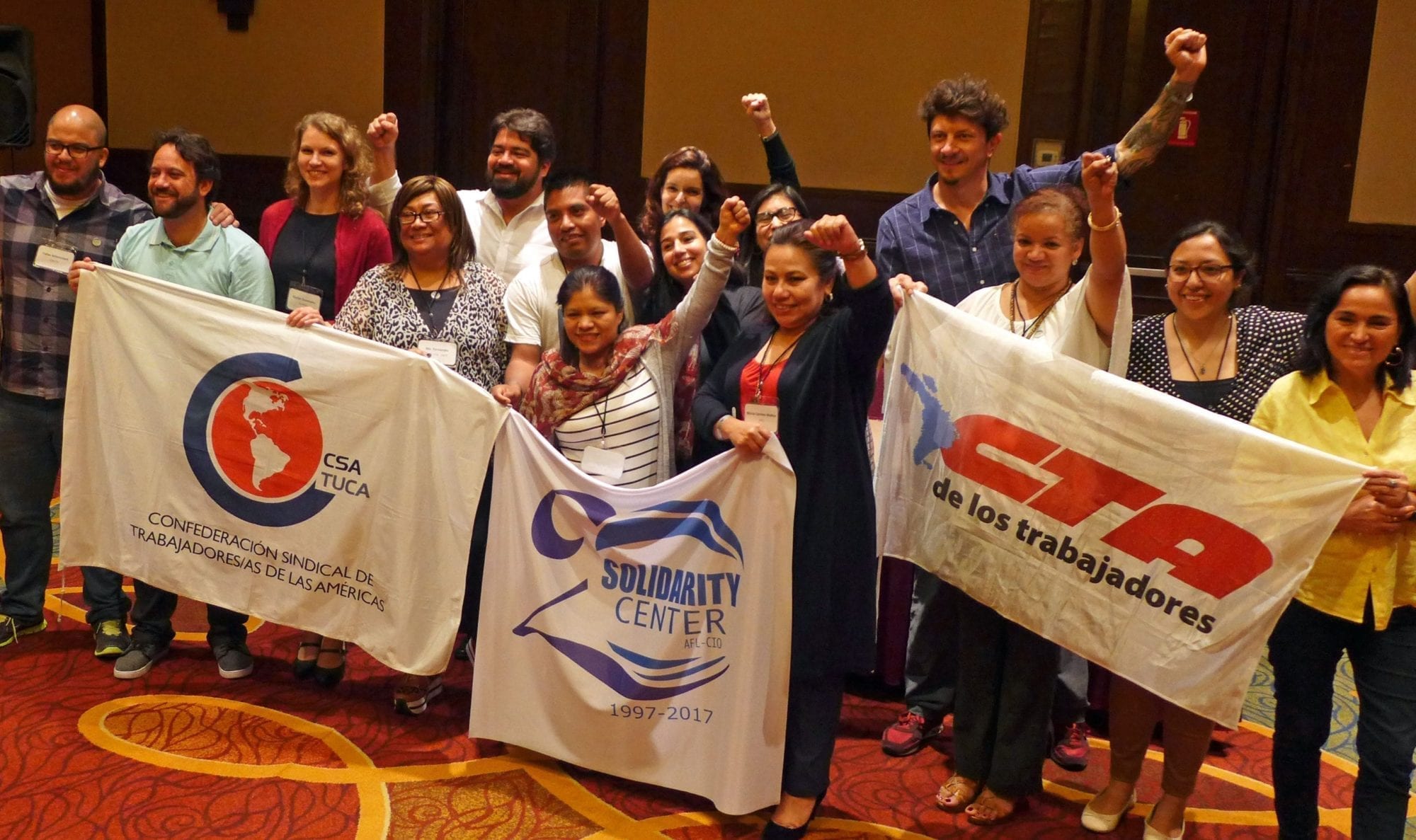
Dec 14, 2017
Protecting the rights of migrant workers must be an essential component of the United Nations Global Compact on Safe, Regular and Orderly Migration, according to union leaders who met recently in Puerto Vallarta, Mexico, to craft a worker rights agenda for inclusion in the global compact, the first inter-governmentally negotiated agreement to comprehensively cover all dimensions of international migration.
The December 1–2 meeting preceded a UN gathering to assess recommendations and discuss implementation of the global compact on migration. The 17 union leaders from across the Americas crafted a shared policy agenda and outlined plans to advocate within national and regional government bodies.
“It cannot be overstated how important the content of the compact will be in terms of creating policies that will affect economic inclusion,” says Neha Misra, Solidarity Center senior specialist for migration and trafficking. “This work will set the agenda for global action on migration and the role of displaced workers for at least the next decade. It is crucial that migrant workers, and the unions and worker centers that represent them, have a voice in the global compact negotiations process.”
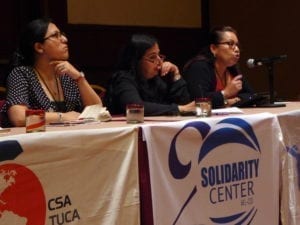
Elena Villafuerte, PRODESC; Neha Misra, Solidarity Center; and María Carmen Molina from CSTS in Mexico were among panelists presenting labor’s joint position on labor migration.
In a panel presentation sharing labor’s joint position with UN participants, María del Carmen Molina, general secretary of the Confederation of Salvadoran Workers (CSTS), stressed the importance of protecting all workers’ rights, regardless of immigration status, and the responsibility of governments to ensure conditions so migration is by choice, not compulsion.
Misra and Solidarity Center partners from the Central American Regional Union Committee on Migration (Comité Inter-Sindical), ProDESC and Centro de Derechos del Migrante in Mexico took part in the civil society meetings prior to the UN’s formal session, and presented their recommendations to the full UN meeting December 4–6.
Union leaders also emphasized the need to ensure accessible pathways to regularization to ensure full rights for the world’s 150 million are migrant workers, and end the global expansion of abusive and exploitative labor migration programs. They agreed to take the issue of migrant worker rights back to their respective labor bodies to continue to educate and advocate on the issue.
The UN process to develop the global compact for migration began in April 2017. The UN General Assembly will hold an intergovernmental conference on international migration in 2018 with a view to adopting the global compact. Following the UN meeting, participants issued a joint statement summarizing their suggestions for implementing the global compact.






